#StandOutFromTheCrowd
Explore tagged Tumblr posts
Text

♥❤♥.¸•❤` 𝓒𝓵𝓪𝓼𝓹 🫂 𝔂𝓸𝓾𝓻 𝓲𝓷𝓽𝓮𝓻𝓷𝓪𝓵 𝓶𝓪𝓰𝓷𝓲𝓯𝓲𝓬𝓮𝓷𝓬𝓮 𝔀𝓲𝓽𝓱 𝓾𝓷𝓬𝓱𝓪𝓷𝓰𝓲𝓷𝓰 𝓑𝓵𝓾𝓮 𝓣𝓸𝓹𝓪𝔃 𝓮𝓪𝓻𝓻𝓲𝓷𝓰 𝓹𝓲𝓮𝓬𝓮𝓼 𝓽𝓱𝓪𝓽 𝓼𝓹𝓪𝓻𝓴𝓵𝓮 ✨ 𝔂𝓸𝓾𝓻 𝓲𝓷𝓷𝓮𝓻 𝓸𝓾𝓽 `❤•¸.♥❤♥
#RananjayExports#SterlingSilver#BeautyOfBlueTopaz#trending#SimpleEarrings#IntricateEarringsDesigns#BlueTopazJewelry#BlueTopazEarrings#StandOutFromTheCrowd#trendingpost
7 notes
·
View notes
Text
Bike Painting Services In UAE

Are you looking to give your bike a fresh new look? Look no further! TradersFind brings you a curated list of top-notch Bike Painting Services in UAE. Our professional and skilled service provider companies are ready to transform your ride with unique designs and quality finishes. Stand out on the roads with our exceptional bike painting service companies!
Visit our website category page to explore more https://www.tradersfind.com/category/bike-painting-services
Connect with us on WhatsApp at +971 56 977 3623 to discuss your Bike Painting Services requirements.
#tradersfind#uae#bikepainting#dubaibikes#abudhabibikes#custompaint#bikelife#standoutfromthecrowd#revampyourride#twowheellove#bikestyle#bikeenthusiast#uaecyclist#supportlocal#businessdirectory#comparequotes#findtherightfit#makeityours#bikegoals#newlookwhodis
2 notes
·
View notes
Text

🎨 Stand Out with Stunning Designs! At Rudram Soft, we bring your brand to life with creative and custom graphic designing services.
💡 From logos to banners, UI/UX to explainer videos – we do it all! 📌 Let your brand speak louder than words.
📞 Contact us: +91 7015751353 🌐 Visit: www.rudramsoft.com
#GraphicDesign#RudramSoft#BrandDesign#LogoDesign#BannerDesign#AnimationVideo#UIUXDesign#BusinessCardDesign#DesignServices#CreativityUnleashed#StandOutFromTheCrowd#mlmsoftware#software development company#mlm software demo#best mlm software#mlm#digitalmarketing#digital marketing#mlm software#seo
1 note
·
View note
Text
HDMS024. How to Stand Out Without Burning Out: Branding, Differentiation, and Sustainable Creativity
Sooooo, quick update—I’m still deep in the trenches of this Harvard course, and at this point, my brain is basically held together by coffee and sheer stubbornness. I just wrapped up Module 2, which covered how brands differentiate themselves from competitors. We explored how companies position themselves in a crowded market, what makes a value proposition distinctive, defensible, and durable, and why some brands create entirely new product categories while others compete within existing ones.
This module hit home because, well, comedy is an insanely crowded market where standing out is everything. But if there’s one thing I’ve learned in the last eight years, it’s that trying to be everything to everyone is a great way to be unforgettable to no one. Finding a niche and embracing what makes you unique? That’s the real key to longevity—whether you’re selling shoes or selling punchlines.
In this post, I’m breaking down:
What I learned from this module (with examples from OOFOS, e.l.f., and Cialis—yes, really)
My own journey of differentiation in comedy (aka how I finally stopped letting other people dictate my voice)
How I’m managing my career with AuDHD without burning out (because standing out is pointless if you can’t sustain it)
What comedians can learn from brand positioning (and why your “competition” isn’t who you think it is)
Let’s get into it.
I. What I Learned from This Module: How Brands Differentiate Themselves
This module was all about brand positioning—how companies define what makes them unique and how they communicate that value to customers. We explored three key questions every brand needs to answer:
Is your value claim DISTINCTIVE? (Do you offer something truly unique that competitors don’t?)
Is your value claim DEFENSIBLE? (Can you back it up with proof so competitors can’t just copy it?)
Is your value claim DURABLE? (Will it still be relevant in five or ten years, or is it just a trend?)
To bring this to life, we studied three case studies:
e.l.f. Cosmetics: A beauty brand that broke into a crowded market by offering prestige-quality makeup at drugstore prices, making high-end beauty more accessible. Their competitive edge? Price AND speed. While most brands take years to launch new products, e.l.f. can launch a new product in as little as 13 weeks.
OOFOS Recovery Footwear: A brand that could have competed in the comfort shoe market but instead decided to create an entirely new category: recovery footwear. Their competitive edge? Their proprietary OOfoam technology, which absorbs 37% more impact than other shoes.
Cialis vs. Viagra: Instead of trying to convince millions of men who didn’t use ED drugs to start taking Cialis (which would’ve required changing their entire perception of aging and masculinity), Cialis went after Viagra’s existing users and positioned itself as the longer-lasting alternative. Their competitive edge? Instead of marketing the science behind their product, they sold the relationship benefits—helping couples enjoy spontaneous intimacy instead of having to plan around a four-hour window.
Each of these brands had to decide where to compete:
Compete in a crowded space but offer something better?
Or create an entirely new category and own it before competitors catch on?
That last question hit me HARD. Because in comedy, everyone is competing for laughs, but the ones who stand out either do something completely different or deliver something familiar in a way no one else can.
So that got me thinking… How have I positioned myself in comedy? Am I competing in an overcrowded market, or am I carving out a unique space for myself? Turns out, I’ve spent years struggling with this exact question without realizing it.
Let’s talk about that.
II. Finding My Voice in Comedy
I’ve been doing comedy since 2016, but let’s be real—I sucked for the first three years. Then, I was okay for the next three. It’s only in the last two years that I’ve actually started to feel like myself on stage. And this year? For the first time ever, I feel like I’ve fully come into my own.
But why did I struggle for so long?
Because I spent YEARS letting other people tell me what comedy was. What comedians should and shouldn’t do. And I took everything they said as absolute, unquestionable truth.
And now that I know I’m autistic and ADHD (AuDHD), I realize... OH. That explains so much.
It turns out, one of the ways autistic people struggle is with black-and-white thinking. If someone tells me something is a “rule,” my brain takes it as law. I don’t question it. I assume it’s just the way things work.
So when comedy professors, bookers, or other comics told me things like:
“Your stories aren’t stand-up. That’s storytelling. You have to start from scratch.”
“Real comedians do short punchlines, not five-minute stories.”
“You need to focus on being a ‘Brazilian comedian’ because that’s what people expect from you.”
“If you’re too pretty on stage, people won’t take you seriously.”
…I took it all at face value. I thought these weren’t just opinions—I thought they were rules I had to follow to succeed.
So what did I do?
I scrapped everything that made me unique.
Instead of leaning into my natural, longform storytelling style, I forced myself to do tight one-liners. Instead of telling my insane personal experiences, I stuck to basic jokes about being Brazilian—because that’s what I was told the “general audience” wanted. And instead of embracing my natural stage presence, I dimmed myself down because I thought that’s what it took to “make it.”
And guess what?
I BOMBED. For THREE YEARS. Because none of that felt authentic to me.
I wasn’t bad at comedy—I was just trying to be a version of a comedian that didn’t fit me.
The first time I ever killed on stage was when I ignored everything I was taught and told a seven-minute-long story about a man with a milk bag in his pants on the subway.
And the audience LOST IT.
That night rewired my brain.
I realized: Maybe they were wrong. Maybe I could make storytelling work in stand-up. Maybe I didn’t have to follow a cookie-cutter formula to be funny.
And now, years later, I finally get it.
The reason I struggled so much early on is the same reason brands struggle to stand out. I was trying to fit into an already crowded market of comics doing the same type of jokes. But the minute I leaned into what made me different, I found my audience.
So what does this have to do with branding? EVERYTHING.
Because if a comedian—or a brand—doesn’t stand out, they get lost in the noise. And standing out means having the confidence to double down on what makes you different.
III. Managing Burnout with AuDHD: Finding a Sustainable Creative Process
One of the biggest lessons I’ve learned—both from comedy and from this Harvard course—is that standing out is pointless if you burn out before you get anywhere. And when you have AuDHD (autism + ADHD), burnout isn’t just a possibility—it’s a guarantee if you don’t manage your energy properly.
For the longest time, I didn’t manage it. I treated my creative process like an all-or-nothing sprint. I’d get hyperfixated on a project, spend days in a row working on it with no breaks, and then completely crash, needing weeks (sometimes months) to recover.
Comedy was no different. I’d go all in on writing new material, scheduling as many shows as I could, forcing myself to do open mics even when I was exhausted—only to hit a wall and disappear for months. And then? I’d feel guilty for not “hustling” enough, and the cycle would repeat.
The AuDHD Burnout Cycle: Work Hard, Crash, Repeat
AuDHD makes burnout deceptively hard to spot in the moment. Because when I’m in a hyperfocus state, I feel unstoppable. I love what I’m working on, my brain is firing on all cylinders, and I genuinely don’t notice my energy draining.
Then suddenly, one day, I wake up and everything feels impossible. My brain fog is unbearable. My body feels like it’s been hit by a truck. I lose motivation to do anything—even things I love.
And that’s when I realize: Oh. I burned out again.
The worst part? My brain tells me that if I’m not constantly producing, I’m falling behind. It makes rest feel like failure, even though it’s literally the only thing that allows me to keep going.
How I’m Learning to Work With My Brain (Instead of Against It)
I’m finally breaking out of that cycle, but it took a lot of trial and error. Here’s what’s been working for me:
Pacing Myself with Rigid Flexibility: I have a structured content calendar, but it’s fluid enough to adapt when my energy shifts. If I wake up in a brain fog, I swap deep work for lighter tasks. If I feel hyperproductive, I batch-create as much as I can while I have the energy.
Working in Task-Based Bursts Instead of Marathon Sessions: Instead of forcing myself to work nonstop for hours, I break tasks into small, manageable chunks and spread them throughout the day. This keeps me engaged without overloading my brain.
Honoring the Hyperfixation While Setting Limits: If I feel obsessed with something, I lean into it—but with a hard stop. I let myself deep dive for a set period (e.g., 3-4 hours), then force a transition (walk, eat, shower) before moving on to something else.
Using Variety to Avoid Overwhelm: If I focus on one thing too long, my brain locks up. So I mix up my work—writing, filming, editing, research—so I don’t hit the mental saturation point.
Tracking My Energy Patterns (and Adjusting Accordingly): I’ve started noticing trends in my focus levels—certain times of day, certain environments, certain triggers. Now I schedule work around my natural rhythms instead of forcing myself to be productive when my brain is in low-power mode.
Reminding Myself That Rest is a Strategy, Not a Reward: The hardest part. Resting before I crash. Taking breaks before I need them. Accepting that sustainability matters more than speed.
Why This Matters for Comedy (And Every Other Creative Career)
Comedy isn’t just about being funny. It’s about consistency. If I’m too burned out to write, perform, or promote myself, it doesn’t matter how good I am. I won’t grow. I won’t get booked. I won’t keep up.
So now, instead of pushing myself until I crash, I focus on longevity. Because standing out is great—but only if I have the energy to keep going.
IV. Applying Brand Differentiation to Comedy: Standing Out in a Saturated Industry
At this point, it’s painfully clear that the entertainment industry (especially comedy) is oversaturated. There are so many comedians out there—each one trying to make a name for themselves, compete for stage time, grow an audience, and get noticed.
Which means that standing out is everything.
But what does that actually mean?
Most comedians assume that standing out means being the funniest person in the room. But here’s the thing:
Funny isn’t enough.
There are a lot of funny people who never get anywhere. And there are a lot of comedians who aren’t technically the funniest—but they still manage to build a massive audience and career.
Why? Because they know how to differentiate themselves.
This is exactly what I’ve been learning from this Harvard module: how to position myself in a way that makes me uniquely valuable to my audience. How to be the person that people actively seek out, remember, and return to—because I offer something they can’t find anywhere else.
Finding My Competitive Advantage as a Comedian
The same way companies have to identify what makes their brand different, comedians have to figure out:
What makes me stand out from every other comedian on stage?
What am I offering that no one else is?
What’s my “thing” that keeps people coming back?
For years, I thought the answer was “just be funny.” But that’s not differentiation. That’s bare minimum.
My actual competitive advantage?
I tell long-form, absurd-yet-relatable stories. Most comedians do short punchy jokes or quick observational humor. My sets lean into structured, narrative storytelling—but with an emphasis on big, wild, theatrical payoffs.
I mix horror, romance, and immigrant humor in a way that feels fresh. I’m a Brazilian immigrant with a deep love for horror and fantasy—so my comedy is this weird blend of spooky, romantic, and deeply cultural. It’s niche but hyper-specific, which makes it memorable.
I’m a hot comedian who isn’t afraid to lean into it. As we’ve already established, a lot of comedians are deeply uncomfortable with the idea of being both “pretty” and “funny.” I used to suppress it—but now? I embrace it because it makes me stand out.
Once I figured these things out, everything changed. My material hit harder. I started getting booked for the right shows. I stopped trying to fit into an industry mold that wasn’t built for me, and instead, I built my own lane.
Lessons from Harvard That Comedians Need to Hear
This module was all about differentiation—how to set yourself apart from the competition in a way that makes your audience choose you. And honestly? Comedians need to think about this just as much as brands do.
Here’s what I’m taking from this lesson and applying to my comedy career:
Stop competing on “funny” alone. Everyone is funny. You need to be unique.
Find what makes you different—and lean into it, hard. Your weird, niche, specific thing? That’s the thing people will remember.
Don’t water yourself down to be “palatable” for everyone. If you try to appeal to everyone, you’ll be memorable to no one.
Your comedy isn’t for everyone, and that’s a good thing. The more you embrace your niche, the stronger your audience will be.
Brand yourself with the same intention as a company does. Think of yourself as a business. What’s your value proposition? Why should people follow you instead of the thousands of other comedians out there?
Owning My Lane Moving Forward
I spent years trying to be the comedian I thought I had to be. Trying to mold myself into what I assumed the industry wanted from me.
Now? I’m building my own brand. I’m owning what makes me different. I’m not trying to be the funniest comedian in general—I’m trying to be the comedian that people who love my style come back to every time.
Because in the end, standing out is the real game-changer.
V. Managing AUDHD Without Burning Out: The Balancing Act of Creativity and Energy
Here’s the thing about being autistic and ADHD (AuDHD) in an industry that thrives on constant output, networking, and high-energy performance: it’s exhausting.
Comedy, content creation, and entrepreneurship all demand a nonstop hustle. You’re expected to always be writing, always performing, always promoting, always engaging. And if you’re not doing that? You feel like you’re falling behind.
For a long time, I thought I just wasn’t built for it. I’d see comedians with endless energy, doing five shows a night, grinding social media, networking like crazy, and never seeming to slow down. Meanwhile, I’d do two back-to-back gigs and need three business days to recover.
It wasn’t until I understood my neurodivergence that I realized:
I’m not lazy—I have a different energy economy. Some people can do multiple shows a night. I can’t. But I can produce and curate unique experiences that other people can’t.
I need to manage my creative output like a limited resource. If I try to go all-in all the time, I’ll burn out. But if I pace myself? I can maintain my creative momentum.
My workflow has to match my brain, not the other way around. Trying to force myself into a neurotypical routine is a recipe for failure. Instead, I’ve built systems that work with how my brain naturally functions.
How I’m Structuring My Comedy Career Without Overloading My Brain
Most comedians follow the traditional grind model—constantly performing, hitting every open mic, and burning themselves out in the name of "putting in the reps."
That does not work for me. So I’ve built my own system.
Batching instead of daily grind.
Instead of forcing myself to constantly write and perform new material every single week, I batch my creativity into intense deep-dive sessions.
I’ll spend a few hyperfixation days writing and refining, then space out my performances so I’m not draining myself every night.
Strategic energy management.
I schedule low-energy tasks (writing, editing, admin) on my downtime days.
High-energy tasks (performing, networking, recording) are spread out so I don’t crash.
If I do a big show, I block out recovery time the next day so I don’t accidentally tank my entire week.
Automating and outsourcing the stuff that drains me.
Scheduling social media posts in batches so I don’t have to manually post every day.
Using email templates for business inquiries so I don’t have to write the same responses repeatedly.
Delegating tasks when I can (eventually hiring an editor, social media assistant, etc.).
Listening to my brain instead of fighting it.
If I’m hyperfocused, I ride the wave and get as much done as possible.
If I’m burnt out, I don’t force productivity. I allow myself to rest, recharge, and come back stronger.
Redefining “Success” Without the Burnout
For years, I measured my progress based on how much I was grinding. If I wasn’t doing as much as everyone else, I felt like I was falling behind.
Now, I measure my success by:
✅ Consistency over intensity. Instead of going hard for a month and burning out, I focus on a sustainable routine that I can maintain long-term. ✅ Impact over quantity. I’d rather put out fewer, high-quality performances and content than drown myself in mediocre, rushed work just to “keep up.” ✅ Personal milestones instead of comparison. My career moves at my pace. If I’m making progress that feels right for me, that’s enough.
The Bottom Line: I’m Building a Career That Works for Me, Not Against Me
I’m done with the unsustainable grind. I’m building my career strategically, with longevity in mind. That means honoring how my brain actually works, instead of constantly pushing against it.
If that means I take longer to get there, so be it. Because I’d rather succeed at my own pace than burn out trying to keep up with someone else’s.
VI. How Comedians Can Stand Out Without Burning Out
We’ve talked about brand positioning in the context of business and marketing, but let’s bring it back to comedy.
Brand positioning is about what makes you different. What makes you stand out in a crowded space? What’s the thing only you can do?
When I first started stand-up, I didn’t think about this at all. I was too busy trying to fit into what other comedians were doing. I took their advice as absolute rules, even when it didn’t feel right for me.
Now, I realize that comedy—like branding—is about differentiation. It’s about finding and owning what makes you unique, instead of chasing someone else’s formula.
The Three Cs of Brand Positioning in Comedy
We learned that strong brand positioning considers:
1️⃣ Consumer Analysis → What does your audience connect with? 2️⃣ Competitive Analysis → What makes you different from other comedians? 3️⃣ Company (Personal) Strengths → What are you uniquely good at?
If you’re a comedian, applying this means figuring out your comedic identity through the same framework.
Let’s break it down:
1. Consumer Analysis: What Does Your Audience Connect With?
Every comedian has an audience. The sooner you figure out who yours is, the better.
What kind of people laugh hardest at your jokes?
What topics do people love hearing you talk about?
What jokes get the biggest reactions (online or onstage)?
I used to think I had to be funny for everyone. Now I know that not everyone is my audience. My best sets happen when I talk about the stuff that matters to me, and the right people resonate with it.
2. Competitive Analysis: What Makes You Different From Other Comedians?
Comedy is like marketing—there are a lot of people doing the same thing. If you’re just blending in, why would anyone remember you?
What’s your angle that makes you different?
What do you bring to the table that nobody else does?
What’s the unique thing only you can do?
For a long time, I was trying to fit into what other comedians thought stand-up should be. I was forcing myself to do shorter, punchier jokes when my brain naturally works in long-form storytelling.
Once I embraced my own style, everything clicked. I’m not a one-liner comic. I’m a storyteller. And that’s what makes me memorable.
3. Personal Strengths: What Are You Naturally Good At?
One of the biggest mistakes comedians make is trying to be something they’re not.
If you’re naturally a physical comedian, lean into it.
If you’re great at crowd work, make it a signature move.
If you thrive in long-form storytelling, don’t force yourself into short-form one-liners.
A huge turning point for me was accepting my strengths instead of fighting them.
I tell insane, lived-experience stories.
I bring a dark, weird, hyperverbal energy.
I love horror, relationships, and immigrant humor.
Instead of molding myself into what I thought comedy should be, I built my comedy around my natural strengths.
The Takeaway: Your Brand as a Comedian is Your Differentiation
If you want to stand out without burning out, you need to know:
✅ Who your audience is. ✅ What makes you different. ✅ What strengths you naturally bring.
Instead of chasing someone else’s formula, build a career that works for you. Your comedic voice is your brand. And when you own it? That’s when you start attracting the right audience and building something sustainable.
VI. What Comedians Can Learn About Brand Positioning
Comedy is an art, but building a comedy career is branding. You might think you’re just being yourself on stage, but audiences—and industry professionals—see you as a brand.
And just like any other brand, comedians need to stand out. The key lesson from this module? You don’t just want to be considered the best—you want to be considered the only one who does what you do.
Take e.l.f. Cosmetics, for example. Instead of competing in the overcrowded beauty market by mimicking luxury brands, they carved out a unique space: prestige quality at drugstore prices. They made sure their value was distinctive, defensible, and durable.
Now, apply that to comedy.
Distinctive: What makes your comedic voice different from every other comedian on the lineup? What do you offer that no one else does? If a booker is scrolling through a list of comics, why should they pick you?
Defensible: Can you prove your value? Do you have a strong POV, consistent comedic style, or audience that already resonates with your material? Can you show that your approach works—whether through social media engagement, killer clips, or audience testimonials?
Durable: Will your brand stand the test of time? Or are you chasing trends that will disappear in a year? If you’re building a career off of crowd work clips but hate doing crowd work, that’s not a durable strategy. If you’ve built a following off of niche references that will date quickly, what’s your next move?
Too many comedians get stuck chasing whatever works in the short term. But if you want longevity in comedy, you need a brand positioning strategy that’s built to last.
VII. How Comedians Can Balance Authenticity and Strategy
At the end of the day, branding isn’t about faking something you’re not—it’s about getting clear on what makes you different and making sure the right people recognize it.
For years, I struggled with this. I tried to fit into molds that didn’t suit me, whether it was shortening my stories to fit “traditional” stand-up structures or dressing down because I was told pretty comedians weren’t taken seriously. But now I realize: the best strategy is to double down on what makes you, YOU.
Brand positioning isn’t about making yourself palatable to everyone. It’s about finding your audience—the people who will ride or die for your comedy because it speaks directly to them. The industry isn’t looking for another generic comedian who plays it safe. They’re looking for voices that stand out, that bring something fresh to the table.
That doesn’t mean ignoring feedback or refusing to adapt. But it does mean knowing when to stand your ground. Not every note is a rule. Not every opinion is fact. And not every industry trend is worth following.
So, whether you’re a comedian, a creative, or just someone trying to build a career without losing yourself in the process, remember this: The goal isn’t just to stand out—it’s to do it in a way that doesn’t burn you out.
You don’t have to change everything about yourself to succeed. You just have to be strategic about amplifying what makes you different.
TL;DR: How to Stand Out Without Burning Out
Aaaaand that was the post!!! You've made it to the end!!!
So, let's recap: branding isn’t about making yourself likable to everyone—it’s about getting the right people to recognize and value what makes you unique. In this post, I broke down:
✅ The Harvard lesson on competitive brand positioning—how brands like OOFOS and e.l.f. differentiate themselves and what makes a value proposition distinctive, defensible, and durable. ✅ My experience with standing out in comedy—why my early career sucked, how I fell into the trap of taking industry “rules” too literally, and what finally helped me find my voice. ✅ How I’m applying these lessons moving forward—doubling down on my strengths, trusting my instincts, and staying true to what makes my comedy unique. ✅ Managing all of this without burnout—balancing self-promotion with self-preservation, navigating creative work with AuDHD, and protecting my energy while building my brand. ✅ What comedians can learn from this—how to craft a unique brand without losing themselves, finding the right audience instead of trying to appeal to everyone, and knowing when to ignore bad advice.
🚀 Key takeaway: The goal isn’t just to stand out—it’s to do it in a way that doesn’t burn you out.
Hope this was as life-changing a lesson for you as it was for me.
See you in the next one!!! Tchau, tchau <3
#PersonalBranding#StandOutFromTheCrowd#CreativeMarketing#BuildYourBrand#BrandStrategy#ComedianLife#ComedyBusiness#FindingYourVoice#AuthenticCreativity#StorytellingInComedy#AuDHD#NeurodivergentCreator#ADHDBurnout#WorkSmarterNotHarder#MentalHealthMatters#HarvardDigitalMarketing#MarketingLessons#LifelongLearning#SelfEmployedLife#CreativeEntrepreneur#MilkshakeLessons#WorkLifeBalance#CreativeBurnout#EntrepreneurMindset#MakingItHappen
0 notes
Text

🔥 Stand Out & Shine with NDSB Digital Partners! 🔥
Let’s create a powerful presence that makes a lasting impact. From strategy to execution, we help you build a brand that speaks volumes.
Get in touch today! 📞 +91-9917777949 📧 [email protected]
#BrandAwareness#DigitalMarketing#StandOutFromTheCrowd#NDSBDigitalPartners#BrandGrowth#MarketingExperts
0 notes
Text

🚀 𝐄𝐥𝐞𝐯𝐚𝐭𝐞 𝐘𝐨𝐮𝐫 𝐁𝐫𝐚𝐧𝐝 𝐭𝐨 𝐍𝐞𝐰 𝐇𝐞𝐢𝐠𝐡𝐭𝐬!
In today’s competitive world, standing out isn’t just an option—it’s a necessity. At Evoquesys, we craft innovative strategies and tailor-made solutions to make your brand rise above the rest. 💼✨
🌟 Let’s take your business from ordinary to extraordinary. Whether you’re just starting or looking to refresh your identity, we’re here to turn your ideas into impactful results. 🌐
📈 𝐘𝐨𝐮𝐫 𝐆𝐫𝐨𝐰𝐭𝐡. 𝐎𝐮𝐫 𝐌𝐢𝐬𝐬𝐢𝐨𝐧. 𝐋𝐞𝐭’𝐬 𝐠𝐫𝐨𝐰 𝐭𝐨𝐠𝐞𝐭𝐡𝐞𝐫!
👉 Contact us today at +91 8249 588 987 or visit www.evoquesys.com to begin your journey toward success!
💬 𝐖𝐡𝐚𝐭’𝐬 𝐲𝐨𝐮𝐫 𝐧𝐞𝐱𝐭 𝐛𝐢𝐠 𝐢𝐝𝐞𝐚? 𝐋𝐞𝐭 𝐮𝐬 𝐛𝐫𝐢𝐧𝐠 𝐢𝐭 𝐭𝐨 𝐥𝐢𝐟𝐞!
#brandbuilding#marketingsolutions#creativestrategies#businessgrowth#innovativeideas#standoutfromthecrowd#evoquesys#successjourney#growwithus
0 notes
Text
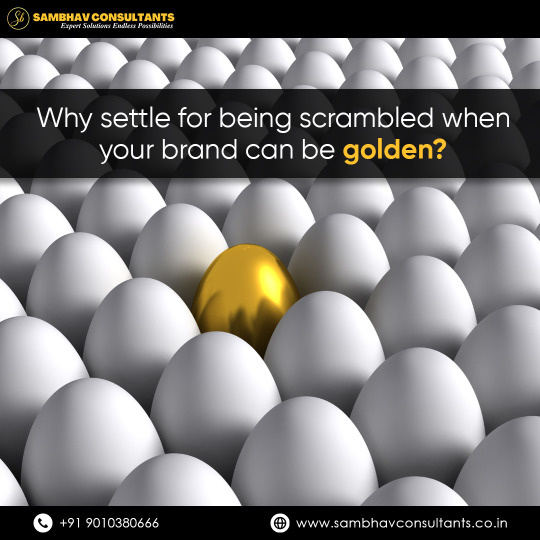
Every egg is white, but one turns golden with the right touch. Make your brand the one that everyone notices.
#LevelUpYourBusiness#BusinessGoals#InnovationInBusiness#EntrepreneurMindset#LeadershipGoals#SuccessDriven#BusinessInspiration#VisionToReality#businessgrowth#BrandingMatters#BuildYourBrand#GoldenOpportunity#MarketingStrategy#BrandIdentity#CreativeBranding#StandOutFromTheCrowd#BusinessGrowth#BrandSuccess#businesstips#related#goodtime#marketingdigital#smallbusiness#propertymanagement#business#photooftheday
0 notes
Text

#BrandingPhotographer#BusinessIdentity#ProfessionalPhotography#PersonalBranding#VisualBranding#ElevateYourBrand#PhotographyForBusiness#MarketingStrategy#SmallBusinessTips#CreativeEntrepreneur#BrandStrategy#StandOutFromTheCrowd#PhotographyTips#ProfessionalImage#BusinessSuccess#BrandStorytelling#PhotographyAndBranding#BusinessGrowth#ElevateYourBusiness#VisualIdentity
1 note
·
View note
Text

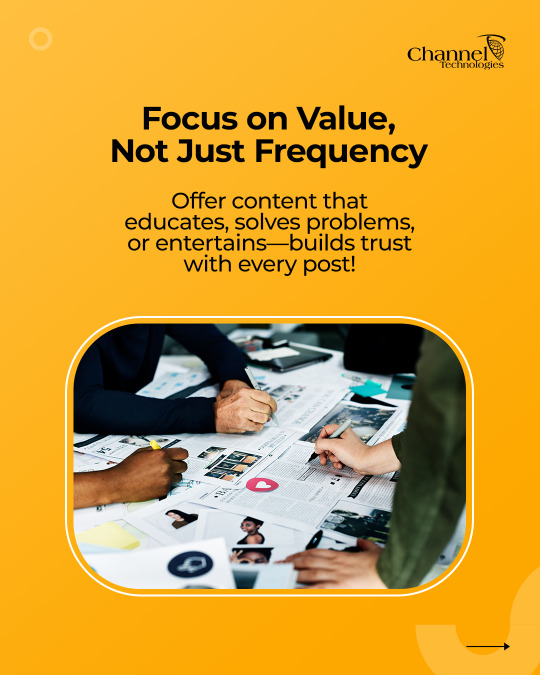
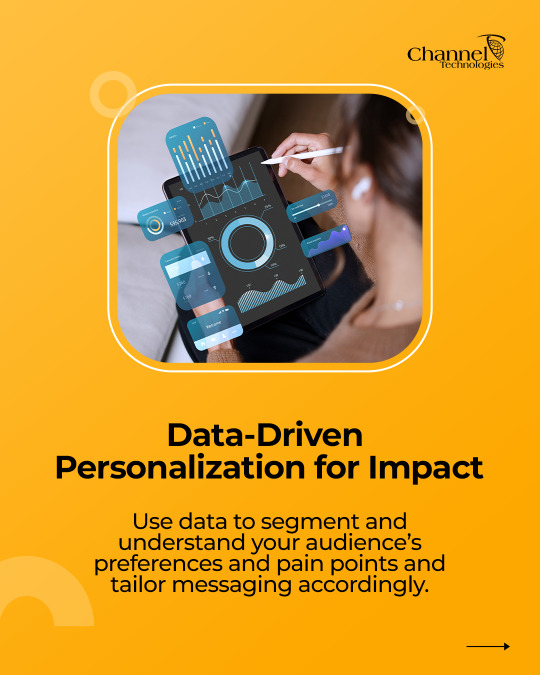
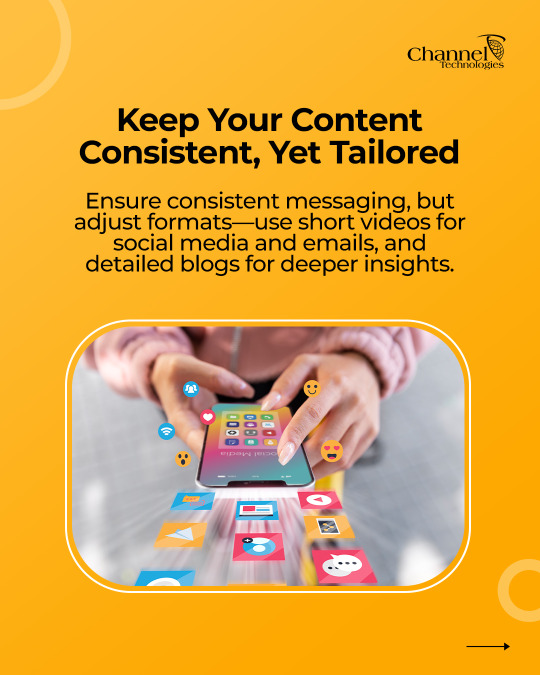
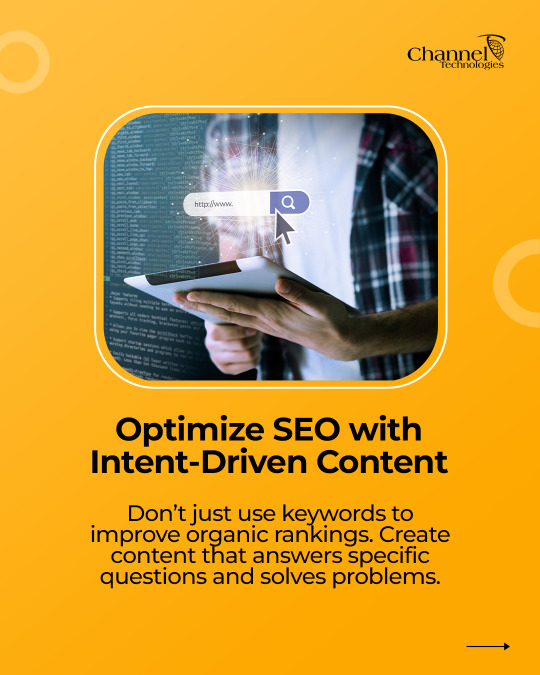
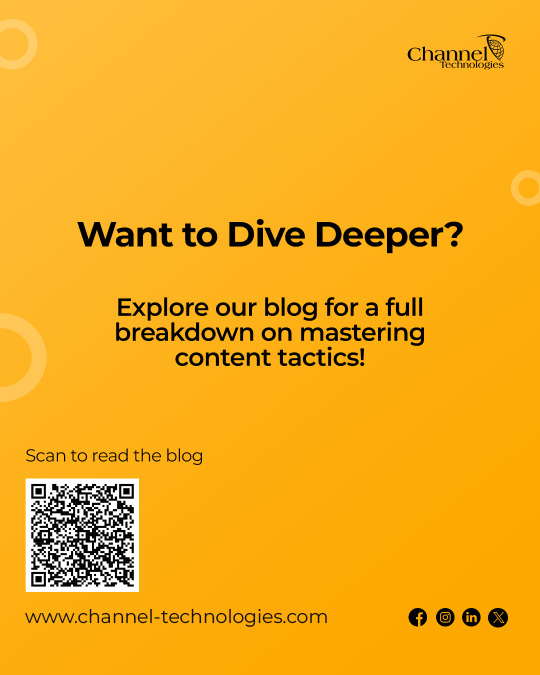
402.74 million terabytes of data is created each day! Swipe to learn practical content marketing tactics to help your brand rise above the clutter and truly resonate with your audience.
BLOG LINK: Mastering Content Marketing Tactics In The Age Of Saturation: Cut Through The Noise
#ChannelTechnologies#contentmarketing#b2bmarketing#contentstrategy#B2BLeadership#b2bsales#B2Bcontentmarketing#businessgrowth#standoutfromthecrowd#CT
0 notes
Text

Even in the 𝗱𝗮𝗿𝗸𝗲𝘀𝘁 𝗺𝗼𝗺𝗲𝗻𝘁𝘀, your 𝗯𝘂𝘀𝗶𝗻𝗲𝘀𝘀 𝗰𝗮𝗻 𝘀𝗵𝗶𝗻𝗲! Let us make your 𝗯𝗿𝗮𝗻𝗱 𝘀𝘁𝗮𝗻𝗱 𝗼𝘂𝘁, no matter the challenge. GoToGroww is here to ensure your success with expert strategies and innovative solutions.
https://gotogroww.com/contact-us/
#BusinessGrowth#GoToGroww#BrandVisibility#MarketingThatMatters#StandOutFromTheCrowd#DigitalMarketingExperts#TacticalGrowth#GuaranteedSuccess#ShineBright#BrandSuccess
0 notes
Photo

Ultra-condensed industrial sans serif font with geometric simplicity, perfect for bold branding, titling, and headlines that demand attention.
Link: https://l.dailyfont.com/uYJRa
#aff#MustSee#LoveIt#AttentionGrabber#BrandingGoals#DesignInspiration#TypographyMatters#IndustrialChic#SansSerifSavvy#FontFrenzy#HeadlineHype#BoldAndBeautiful#GeometricGlamour#SimpleYetPowerful#CondensedCool#UniqueIdentify#StandoutFromTheCrowd
1 note
·
View note
Text
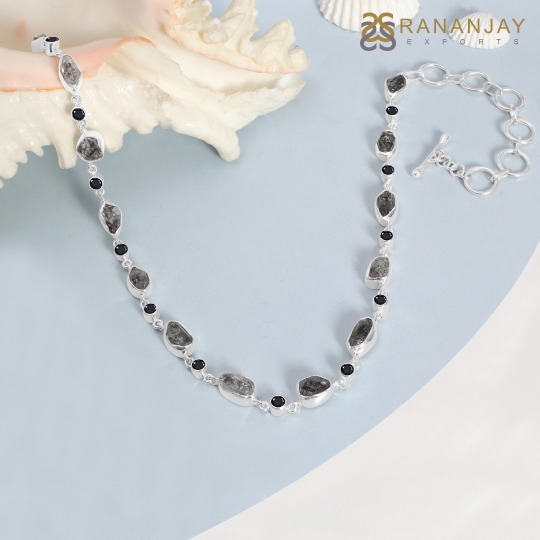
.•☆•.¸★ 𝐹𝑒𝑒𝓁 𝓉𝒽𝒶𝓉 𝒸𝓁𝒶𝓇𝒾𝓉𝓎 𝒶𝓃𝒹 𝑒𝓃𝑒𝓇𝑔𝓎 𝐻𝑒𝓇𝓀𝒾𝓂𝑒𝓇 𝒟𝒾𝒶𝓂𝑜𝓃𝒹 💎 𝒷𝓇𝒾𝓃𝑔𝓈 𝓉𝑜 𝓁𝒾𝒻𝑒 𝒶𝓇𝑒 𝒾𝓃𝒹𝑒𝑒𝒹 𝓃𝑒𝓍𝓉-𝓁𝑒𝓋𝑒𝓁 ★⡀.•☆•.
#RananjayExports#NaturalAndUncut#925SterlingSilverJewelry#trendingpost#HerkimerDiamondJewelry#GemstoneJewelry#trending#HerkimerDiamondNecklaces#StandOutFromTheCrowd
0 notes
Text
Ultimate Comfort and Bright Activewear Set | Flex Life Wear
youtube
"Elevate your workout experience to new heights with our Ultimate Comfort and Bright Activewear Set by Flex Life Wear. Crafted with meticulous attention to detail and a dedication to quality, this set redefines what activewear can be. From the gym to the yoga studio and everywhere in between, our set offers unparalleled comfort and style, ensuring you look and feel your best with every move you make. The premium, breathable fabrics gently hug your curves while allowing for unrestricted movement, keeping you cool and dry even during the most intense workouts. And with vibrant, eye-catching colors that demand attention, you'll stand out from the crowd in the best way possible. Whether you're pushing yourself to new limits or finding your zen, our activewear set is your ultimate companion on the journey to a healthier, happier you. Embrace the Flex Life and experience the difference today!"
#FlexLifeWear#UltimateComfort#BrightActivewear#PremiumQuality#UnrestrictedMovement#StayCoolStayDry#ElevateYourWorkout#GymFashion#YogaStyle#ConfidenceBoost#FashionForwardFitness#StandOutFromTheCrowd#AthleticWear#UpgradeYourActivewear#FindYourZen#FitnessJourney#EmbraceTheFlexLife#Youtube
0 notes
Text
Best Custom Design Services Florida
Printing Warehouses of America takes pride in offering superior custom business card designs that stand out from the crowd. Our team of skilled designers combines creativity with precision to deliver cards that perfectly capture the essence of your brand. Whether you prefer sleek and minimalist designs or bold and eye-catching layouts, we have the expertise to bring your vision to life. With our commitment to excellence and customer satisfaction, you can trust us to provide you with business cards that make a lasting impression. Elevate your brand with Printing Warehouses of America and leave your mark on the business world.
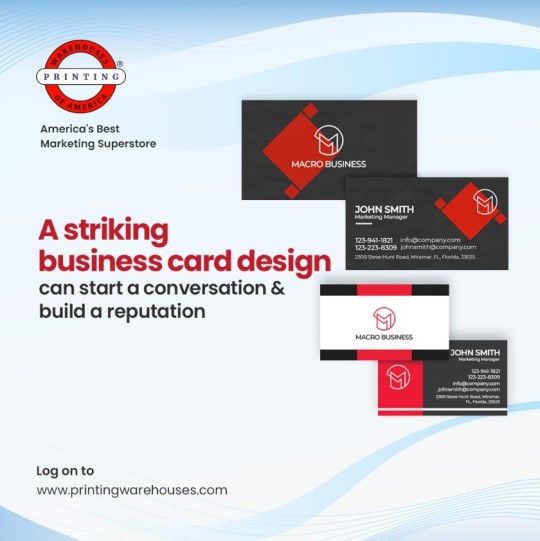
#PrintingWarehouses#CustomDesigns#BusinessCards#ProfessionalDesign#BrandIdentity#CreativeSolutions#TopTierQuality#MemorableImpression#ExpertiseInDesign#CustomerSatisfaction#ElevateYourBrand#StandOutFromTheCrowd#CreativeDesigns
0 notes
Text
#ConstructionGoals#MeshBanners#BuildingDreams#StandOutFromTheCrowd#ConstructionSite#EyeCatchingDesigns#DurableAndStylish
0 notes
Text
Elevate your business with standard business cards from ezprinters. Our meticulously crafted cards are more than just contact information; they're a reflection of your professionalism and attention to detail.
📞 020 8144 0304 📧 [email protected]

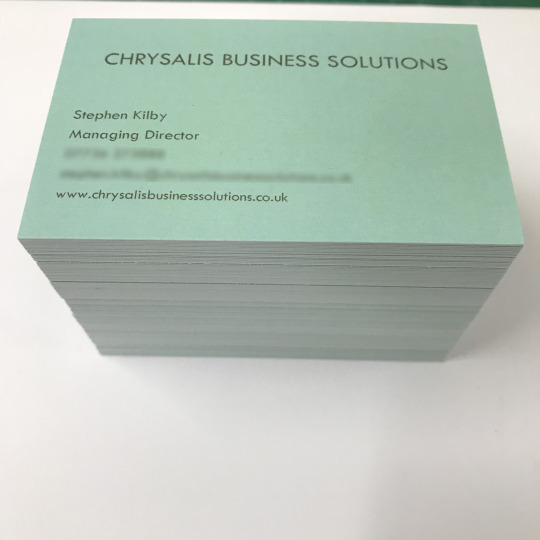
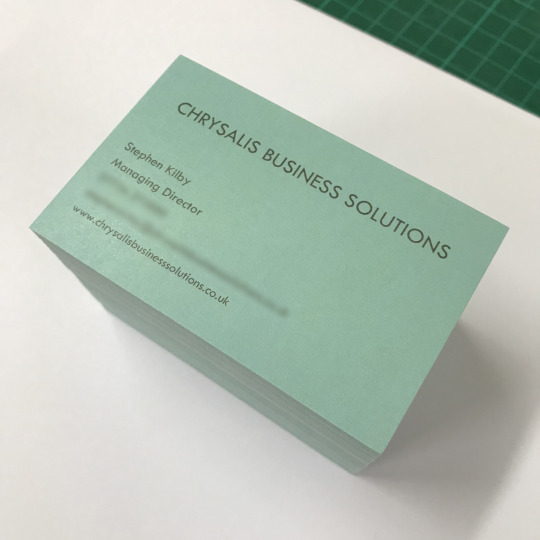
Order Now: https://ezprinters.co.uk/product/standard-business-cards/
Visit our website: www.ezprinters.co.uk
Find us on- Facebook- www.facebook.com/ezprinters Instagram- www.instagram.com/ezprinters Twitter- www.twitter.com/ezprinters LinkedIn- www.linkedin.com/company/ez-printers
#printing#graphicdesign#print#design#CustomBusinessCards#PremiumBusinessCards#BusinessCardDesign#StandOutFromTheCrowd#UniqueBusinessCards#StandardBuisinessCards#BusinessCardPrint#PrintedGraphics#event#eventplanning#printingservices#printingindustry#BrandPromotion#printingpress#london#uk
0 notes